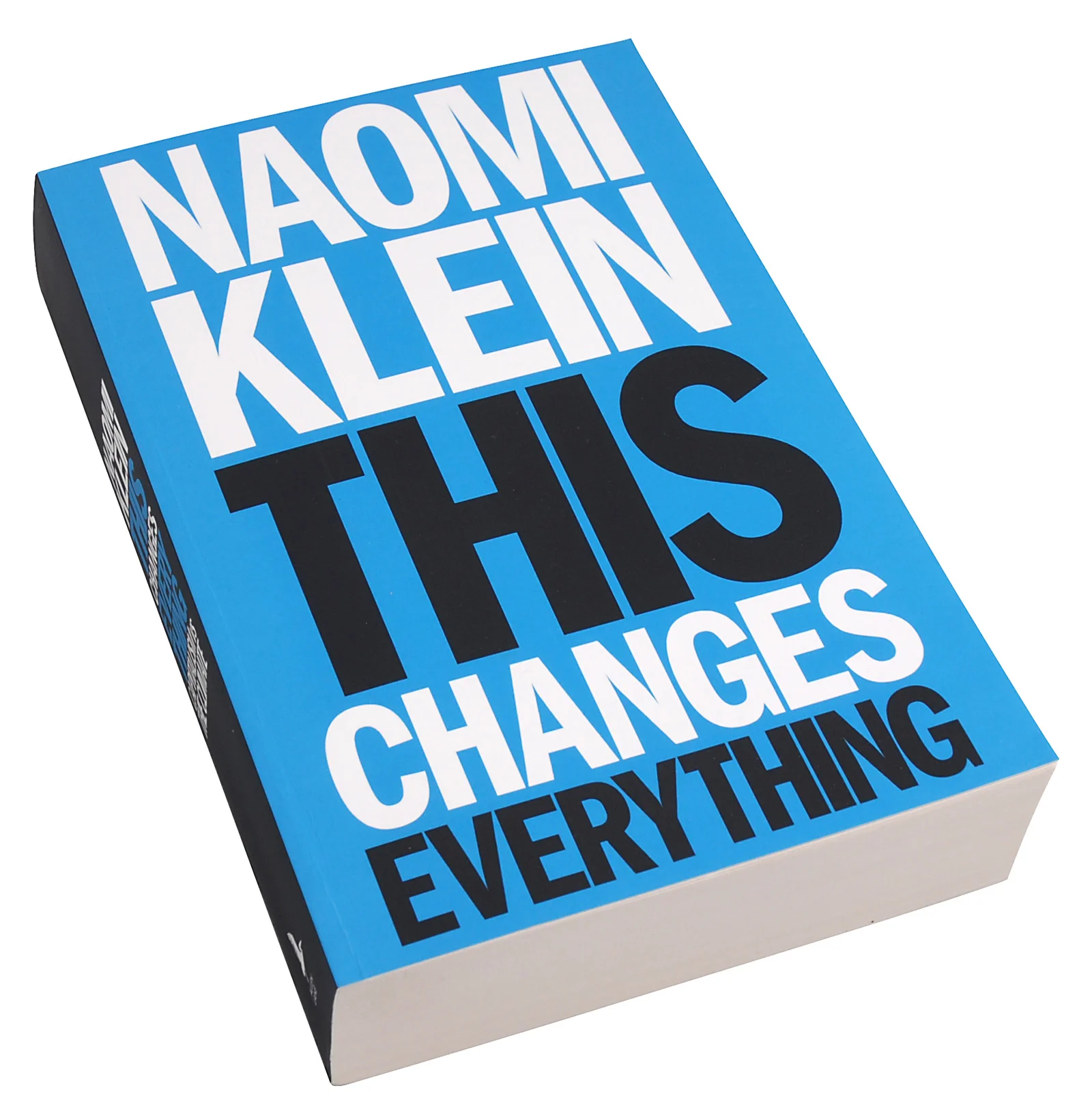I have finally gotten around to read Naomi Kleins 'This Changes Everything" (2014) (yes, I know, a little late to the game) However, even if you read it now, you will still get some really good insights as to where we are currently in the climate discourse.
Klein is a Canadian journalist, author and political activist, and 'This Changes Everything' draws most of its example from the current day US climate policies. The main idea of the book is that its the current economical system, capitalism, that is ruling how we make all other decisions, including those for the climate. If you are either interested in climate, as I sort of assume you are if you've found your way to this blog, but also if you are interested in how economy influence all aspects of society, then this might be the book for you.
One of my most 'aha!' moments when reading the book, was when she discusses how the fossile fuel industry per definition neither can't stop nor won't stop before they have literally searched every inch of our common Earth. This has to do with how it is financed; oil companies gets new investments based on what they estimate that they will be able to produce. So with this cycle, they can never stop searching. Klein gives some devastating examples in the book about small island communities that perished because of this extractive industry. For a more thorough explanation of this and a lot more, I can really recommend this book. It is also a good road map if you have just gotten into the climate debate, but want to get a bit more back history on how the movement came to be.


